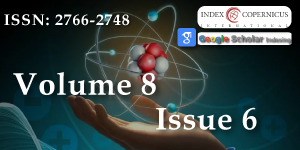Systems of Fuzzy Reasoning and Expert Knowledge-based Fuzzy Reasoning Systems, used in Modelling Real-world Phenomena
Main Article Content
Abstract
In this paper, the concept of ‘system of fuzzy reasoning’ is presented. It is the fi rst
temptation to expand ideas presented in [1] concerning ‘human intelligence’ linguistic
variable and [2] concerning ‘truth value of fuzzy reasoning’ in the framework of the
human intelligence linguistic variable. In ‘systems of fuzzy reasoning’, besides the
‘human intelligence’ linguistic variable also other linguistic variables are also used.
An expert knowledge-based system of fuzzy reasoning describing the dynamics of a
real-world phenomenon is presented.
Article Details
Copyright (c) 2025 Cojocaru AV, et al.

This work is licensed under a Creative Commons Attribution 4.0 International License.
1. Cojocaru AV, Balint S. The ‘human intelligence’ linguistic variable is a potential fuzzy computational model for the natural languish expression ‘human
intelligence. Computing&AI Connect. 2025;2:2025.0015. https://doi.org/Registering%20DOI
2. Cojocaru AV, Balint S. What is the true value of fuzzy reasoning in the framework of the ‘human intelligence ‘linguistic variable? Int J Phys Res Appl.
2025;8(4):065-100. Available from: https://dx.doi.org/10.29328/journal.ijpra.1001117
3. Bardossy A, Duckstein L. Fuzzy rule-based modeling with applications to geophysical, biological, and engineering systems. Boca Raton: CRC Press;
1995;256. Available from: https://doi.org/10.1201/9780138755133
4. Zimmermann HJ. Fuzzy set theory and its application. 4th ed. Springer Science + Business media; 2001. Available from: https://link.springer.com/
book/10.1007/978-94-010-0646-0
5. Dubois D, Prade H. Possibility Theory: An approach to computerized processing of uncertainty. New York: Plenum Press; 1988;268. Available from:
https://archive.org/details/possibilitytheor0000dubo
6. Yasunobu S, Miyamoto S. Automatic train operation system by predictive fuzzy control. In: Sugeno (ed). Industrial applications of Fuzzy control. North
Holland, Amsterdam; 1985;1-18.
7. Shingu T, Nishimori E. Fuzzy based automatic focusing system for a compact camera. In: Proceedings of the third IFSA Congress; 1989;436-439.
8. Holmblad LP, Ostergaard JJ. Control of cement kiln by fuzzy logic. In: Gupta MM, Sanchez E (eds). Fuzzy Information and Decision Processes. North Holland,
Amsterdam; 1982.

